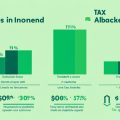Last Updated on: 4th May 2024, 04:27 am
In the UK, car tax, also known as vehicle tax or road tax, is a mandatory fee that vehicle owners must pay to legally drive on public roads. The amount of car tax you have to pay depends on various factors, including the type of vehicle, its CO2 emissions, and its list price. To find out how much your car tax will be, you can use a car tax calculator or refer to the government’s official rates for vehicle tax.
Introduction to Car Tax in the UK
Car tax, or vehicle tax, is an essential part of owning and driving a car in the UK. It is a legal requirement to pay car tax to ensure that you have the necessary funds to maintain and improve the country’s road infrastructure. Car tax rates are determined by the government and are based on various factors, including the vehicle’s CO2 emissions and fuel type. Understanding the different car tax bands, motor tax charges, and vehicle excise duty rates is crucial to calculating road tax accurately.

1. Car Tax Bands
Car tax bands categorize vehicles based on their CO2 emissions. The government assigns each band a corresponding tax rate. Vehicles with lower CO2 emissions generally fall into lower tax bands, while those with higher emissions have higher tax rates. It is important to know your vehicle’s CO2 emissions to determine which tax band it falls into and calculate your car tax accordingly.
2. Motor Tax Charges
Motor tax charges are the rates set by the government for each tax band. These charges vary depending on the CO2 emissions of the vehicle. The lower the emissions, the lower the tax charge. By understanding the motor tax charges for your vehicle’s tax band, you can calculate the amount of car tax you need to pay each year.
3. Vehicle Excise Duty Rates
Vehicle Excise Duty (VED) rates are another term for car tax rates. These rates are determined by the government and are based on factors such as CO2 emissions and the fuel type of the vehicle. VED rates can vary from year to year, so it’s important to stay updated on the current rates to accurately calculate your car tax. Using a car tax calculator or consulting the official government guidelines can help you determine your vehicle’s VED rate.
4. Calculating Road Tax
To calculate road tax, you need to consider your vehicle’s CO2 emissions, fuel type, and tax band. Based on these factors, you can determine the applicable motor tax charge and calculate your annual car tax. It’s important to note that different types of vehicles, such as electric or hybrid cars, may have different tax rates or even qualify for reduced tax charges. By understanding how car tax is calculated, you can have a clear idea of how much road tax you need to pay for your vehicle.
Understanding the Different Types of Vehicle Tax
In the United Kingdom, vehicle tax is categorized into different types based on various factors such as the type of vehicle, CO2 emissions, and fuel type. It’s important to understand these different types to determine the applicable tax rates and fees. Here are the various vehicle tax categories:
1. Cars Registered on or after 1 April 2017
This category applies to cars that were registered on or after 1 April 2017. The tax rates for these cars are determined by their CO2 emissions and fuel type.
2. Cars Registered between 1 March 2001 and 31 March 2017
This category includes cars that were registered between 1 March 2001 and 31 March 2017. The tax rates for these cars are also based on their CO2 emissions and fuel type.
3. Cars and Light Goods Vehicles Registered before 1 March 2001
This category is for cars and light goods vehicles that were registered before 1 March 2001. The tax rates for these vehicles depend on their engine size.
4. Motorhomes
Motorhomes have their own specific tax rates, which are based on their weight and CO2 emissions.
5. Other Vehicle Tax Rates
There are also separate tax rates for other types of vehicles such as motorcycles, tricycles, and more. The tax rates for these vehicles vary depending on their specifications and emissions.
It’s important to consult the government’s official guidelines and rates to determine the specific tax rates for your vehicle based on its registration date and other relevant factors. This will ensure that you accurately calculate and pay the appropriate vehicle tax fees.

| Vehicle Type | Tax Rates |
|---|---|
| Cars Registered on or after 1 April 2017 | Based on CO2 emissions and fuel type |
| Cars Registered between 1 March 2001 and 31 March 2017 | Based on CO2 emissions and fuel type |
| Cars and Light Goods Vehicles Registered before 1 March 2001 | Based on engine size |
| Motorhomes | Based on weight and CO2 emissions |
| Other Vehicle Types | Specific rates for each type |
How is Car Tax Calculated?
Car tax, also known as vehicle tax or road tax, is calculated based on several factors, including the vehicle’s CO2 emissions, fuel type, and list price. The UK government has set specific rates for different ranges of CO2 emissions and fuel types to determine the amount of car tax you need to pay.
The first car tax payment, which is made when the vehicle is first registered, is based on these rates. Subsequent tax payments are determined by the vehicle’s fuel type and can be paid annually or biannually.
To calculate your car tax, you have several options at your disposal. The government provides online tools and calculators that can help you estimate your car tax amount. These calculators take into account the vehicle’s CO2 emissions, fuel type, and other relevant information to provide you with an accurate estimate.
In addition to the online calculators, you can consult the official rates and guidelines provided by the government to get detailed information about car tax calculations. These resources outline the specific rates for different vehicle types and emissions, helping you understand how your car tax is calculated.
Understanding how car tax is calculated is important for budgeting purposes and to ensure that you are paying the correct amount. By using the available resources and tools, such as car tax estimators and government guidelines, you can easily calculate your car tax and stay compliant with the law.

Example of Car Tax Calculation
Let’s consider an example to further illustrate how car tax is calculated.
Suppose you have a petrol car with CO2 emissions of 150 g/km and a list price of £20,000. According to the government’s rates, the car tax for this vehicle falls under Band E, which has a standard rate of £150 for the first year. For subsequent years, the annual car tax for this band is £140.
Based on this information, the car tax calculation for the first year would be:
| CO2 Emissions Band | First Year Rate | Subsequent Years Rate |
|---|---|---|
| Band E | £150 | £140 |
Keep in mind that car tax rates may vary depending on the vehicle’s specifications and emissions. By referring to the government’s official rates and using online tools and calculators, you can easily calculate your car tax and understand how much you need to pay.
How Much Is My Car Tax in the UK?
The amount of car tax you have to pay in the UK depends on various factors, including the vehicle’s CO2 emissions, fuel type, list price, and registration date. The rates for car tax are set by the government and can be found in the official rates and guidelines. To find out how much your car tax will be, you can use a car tax calculator or refer to the specific rates based on your vehicle’s specifications and registration date.
If you are wondering, “How much is my car tax?” the answer lies in understanding the criteria used to calculate the amount you need to pay. By considering the CO2 emissions, fuel type, list price, and registration date of your vehicle, you can determine the applicable rate.
A car tax calculator is a helpful tool that provides an easy way to estimate your car tax fees. By entering the necessary information about your vehicle, such as its emissions and fuel type, the calculator can generate an accurate estimate of your road tax price. This will help you plan your budget and ensure that you are prepared to meet your car tax obligations.
It is important to keep in mind that car tax rates can vary depending on changes in government regulations and policies. Therefore, it is recommended to stay updated with the latest official rates and guidelines to ensure you are paying the correct amount of car tax.
Car Tax Rates in the UK
| Vehicle Emissions | First Year Rate | Standard Rate (After the First Year) |
|---|---|---|
| 0 g/km CO2 emissions | £0 | £0 |
| 1-50 g/km CO2 emissions | £10 – £25 | £150 – £170 |
| 51-75 g/km CO2 emissions | £25 – £110 | £150 – £170 |
| 76-90 g/km CO2 emissions | £125 – £145 | £150 – £170 |
| Over 90 g/km CO2 emissions | Varies | £150 – £170 |
It’s important to note that these rates are subject to change and may vary based on the specific circumstances of each vehicle. To get the most accurate and up-to-date information, it is recommended to use the government’s official car tax calculator or consult the official rates and guidelines.
By understanding how car tax is calculated and using online tools like a car tax calculator, you can determine the amount you need to pay and ensure compliance with the UK’s car tax regulations. Remember to consider the various factors that affect car tax fees, such as vehicle emissions and fuel type, and stay informed about any changes in rates and regulations to avoid any surprises or penalties.

Factors that Affect Your Car Tax
Several factors can affect the amount of car tax you have to pay in the UK. These factors include the vehicle’s CO2 emissions, fuel type, list price, and the registration date. The rates for car tax may vary from year to year as the government introduces new regulations and incentives to promote low-emission vehicles.
When it comes to car tax, vehicles with lower CO2 emissions are often subject to reduced rates. Electric and hybrid vehicles, for example, tend to have low CO2 emissions, making them eligible for lower road tax fees. In fact, some electric and hybrid vehicles may even qualify for an annual road tax rate as low as £30.
It’s important to note that the vehicle’s registration date also plays a role in determining the car tax rate. Older vehicles may have different tax bands and rates compared to newer models. Therefore, it’s always a good idea to check the latest car tax rates and regulations to ensure you pay the correct amount.
To find out how much your car tax will be next year, you can refer to the government’s official rates and guidelines. Additionally, various online tools and calculators can help you estimate your car tax based on the vehicle’s specifications. By considering the factors that affect your car tax, you can plan your finances accordingly and ensure compliance with the law.
Overall, understanding the factors that influence car tax is crucial for every vehicle owner in the UK. By staying informed about CO2 emissions, fuel types, list prices, and registration dates, you can make informed decisions when purchasing a vehicle and anticipate your car tax obligations. Remember to regularly check for updates on car tax rates and take advantage of any incentives or exemptions that may be available to you.
Ways to Save on Car Tax
When it comes to car taxation in the UK, there are several ways you can save on car tax and reduce your expenses. By making informed choices and taking advantage of available incentives, you can make a significant difference in the amount of car tax you pay.
1. Choose a Vehicle with Lower CO2 Emissions
One of the most effective ways to save on car tax is by selecting a vehicle with lower CO2 emissions. The UK government has implemented a car tax system that rewards vehicles with lower emissions by offering reduced tax rates. By opting for a car with lower CO2 emissions, you can benefit from lower tax fees and contribute to a greener environment.
2. Consider Electric or Hybrid Vehicles
Electric and hybrid vehicles are becoming increasingly popular in the UK, and for a good reason. These vehicles produce fewer emissions and qualify for significant reductions in car tax rates. By choosing an electric or hybrid vehicle, you can not only save on car tax but also enjoy the benefits of environmentally friendly transportation.
3. Register Your Vehicle as Off the Road (SORN)
If you’re not using your vehicle and want to avoid paying car tax temporarily, you can register it as off the road (SORN). This means that you declare your vehicle as not being in use or kept on a public road. By registering your vehicle as SORN, you can exempt yourself from paying car tax until you start using it again.
4. Stay Updated on Current Tax Rates and Incentives
To ensure that you are paying the correct amount of car tax and taking advantage of any available incentives or exemptions, it is important to stay updated on the current car tax rates. The government may introduce changes to tax bands and rates, particularly for low-emission vehicles. By staying informed, you can make informed decisions and save on car tax accordingly.
Summary of Ways to Save on Car Tax
| Ways to Save on Car Tax | Benefits |
|---|---|
| Choose a Vehicle with Lower CO2 Emissions | Reduced tax rates based on emissions |
| Consider Electric or Hybrid Vehicles | Significant reductions in car tax rates |
| Register Your Vehicle as Off the Road (SORN) | Temporary exemption from car tax if not in use |
| Stay Updated on Current Tax Rates and Incentives | Ensure correct payment and take advantage of available savings |
How to Pay for Your Car Tax?
To pay for your car tax in the UK, you have several options available. One convenient method is to visit the government’s official website. By accessing their online portal, you can easily find information regarding your vehicle’s tax band and the corresponding tax amount. This allows you to determine the exact payment required for your car tax.
Alternatively, you can utilize the vehicle enquiry service, accessible through the same website. This service allows you to check the current tax rates for your vehicle. Simply provide either the registration number or the 11-digit reference number from your vehicle logbook to access the relevant information.
It’s worth noting that car tax payments can be made annually or biannually, depending on your preference and financial circumstances. Furthermore, the payment can be made in full, covering the entire tax amount at once, or you can opt to set up a Direct Debit payment plan to pay in installments.
Payment Options for Car Tax
- Visit the government’s official website to check your vehicle’s tax band and tax amount
- Use the vehicle enquiry service and provide your registration number or 11-digit reference number from your vehicle logbook
- Choose to pay your car tax annually or biannually
- Make a full payment at once or set up a Direct Debit payment plan to pay in installments
By understanding the different payment options available, you can easily fulfill your car tax obligations and ensure that you are compliant with the law.
Conclusion
Car tax is a crucial aspect of vehicle ownership and driving in the United Kingdom. The amount of car tax you need to pay is determined by several factors, including your car’s CO2 emissions, fuel type, list price, and registration date. To determine the exact amount of car tax applicable to your vehicle, you can use the government’s online tools and calculators or refer to the official rates and guidelines.
It is vital to stay informed about the current car tax rates and any incentives or exemptions that may be available. By doing so, you can ensure that you are paying the correct amount and remaining compliant with the law. Remember that car tax rates can vary from year to year, and certain types of vehicles, like electric or hybrid cars with low emissions, may qualify for reduced rates.
Whether you use a car tax calculator, consult the official rates, or seek guidance from the government’s resources, staying up to date with car tax regulations will help you make informed decisions and manage your vehicle-related expenses effectively.
FAQ
1. How much is my car tax in the UK?
The amount of car tax you have to pay in the UK depends on various factors, including the vehicle’s CO2 emissions, fuel type, list price, and registration date. To find out how much your car tax will be, you can use online tools and calculators provided by the government or consult the official rates and guidelines.
2. What is the tax rate for my car?
The tax rate for your car depends on factors such as the vehicle’s CO2 emissions, fuel type, list price, and registration date. The government has set specific rates for different ranges of CO2 emissions and fuel types. You can find the specific tax rate for your car by using online tools and calculators provided by the government or referring to the official rates and guidelines.
3. How do I find the tax band for my car?
To find the tax band for your car, you can use the government’s online vehicle enquiry service. You can search for your car using either the registration number or the 11-digit reference number from your vehicle logbook. The vehicle enquiry service will provide you with information about your car’s tax band and the corresponding tax amount.
4. How much is my car tax next year?
The amount of car tax you will have to pay next year depends on several factors, including any changes in the government’s tax rates and any incentives or exemptions that may apply. To get an estimate of your car tax for the next year, you can use online tools and calculators provided by the government or consult the official rates and guidelines.
5. How much is UK road tax?
The amount of road tax you have to pay in the UK depends on various factors, including the vehicle’s CO2 emissions, fuel type, list price, and registration date. The rates for road tax are set by the government and can be found in the official rates and guidelines. To find out how much UK road tax will be for your vehicle, you can use online tools and calculators provided by the government or refer to the specific rates based on your vehicle’s specifications and registration date.
6. Which cars have £30 road tax?
Certain cars, such as electric or hybrid vehicles with low CO2 emissions, may qualify for a reduced road tax rate of £30 per year. To determine if your car is eligible for this reduced rate, you can use online tools and calculators provided by the government or consult the official rates and guidelines based on your vehicle’s specifications.
7. How do I find out how much my road tax is?
To find out how much your road tax is, you can use the government’s online vehicle enquiry service. By entering your car’s registration number or the 11-digit reference number from your vehicle logbook, you will be able to view the current tax band and the corresponding tax amount for your vehicle.
8. What are the motor tax charges in the UK?
The motor tax charges in the UK are based on the vehicle’s CO2 emissions, fuel type, list price, and registration date. The rates for motor tax are set by the government and can be found in the official rates and guidelines. To determine the motor tax charges for your vehicle, you can use online tools and calculators provided by the government or consult the official rates and guidelines based on your vehicle’s specifications.
9. How much does vehicle tax cost?
The cost of vehicle tax in the UK varies depending on factors such as the vehicle’s CO2 emissions, fuel type, list price, and registration date. The rates for vehicle tax are set by the government and can be found in the official rates and guidelines. To find out how much your vehicle tax will cost, you can use online tools and calculators provided by the government or refer to the specific rates based on your vehicle’s specifications and registration date.
10. How is car tax calculated?
Car tax is calculated based on factors such as the vehicle’s CO2 emissions, fuel type, and list price. The government has set specific rates for different ranges of CO2 emissions and fuel types. The first tax payment, made when the vehicle is first registered, is based on these rates. Subsequent tax payments are determined by the vehicle’s fuel type and can be paid annually or biannually. To calculate your car tax, you can use online tools and calculators provided by the government or consult the official rates and guidelines.




















No Comments
Leave a comment Cancel